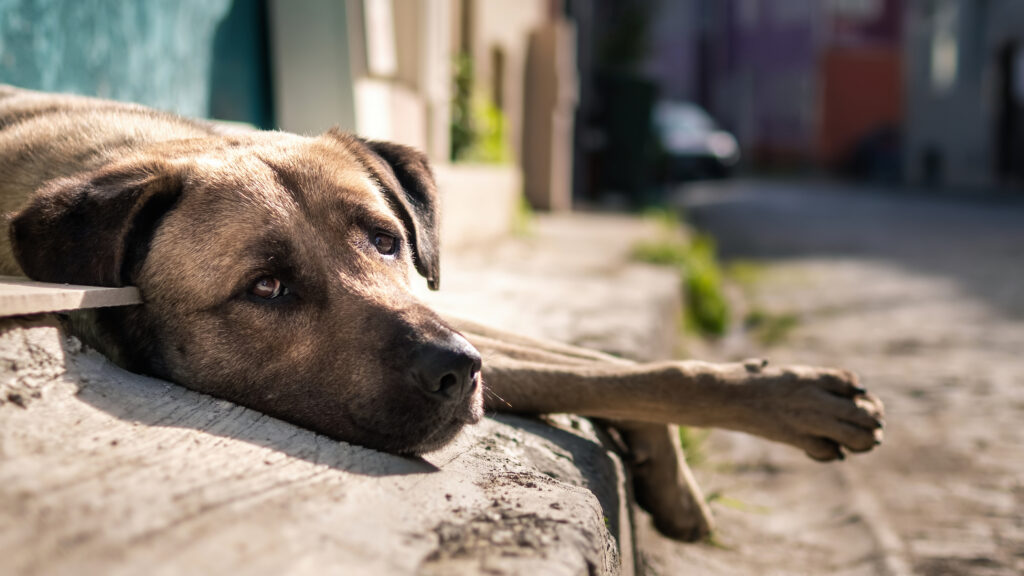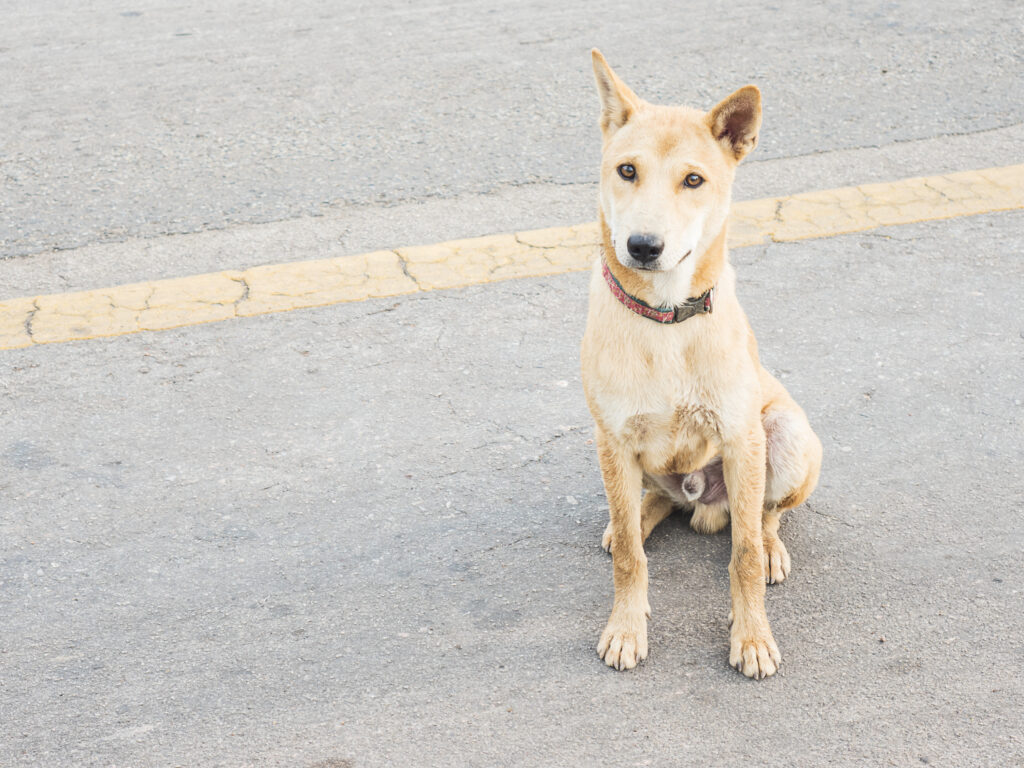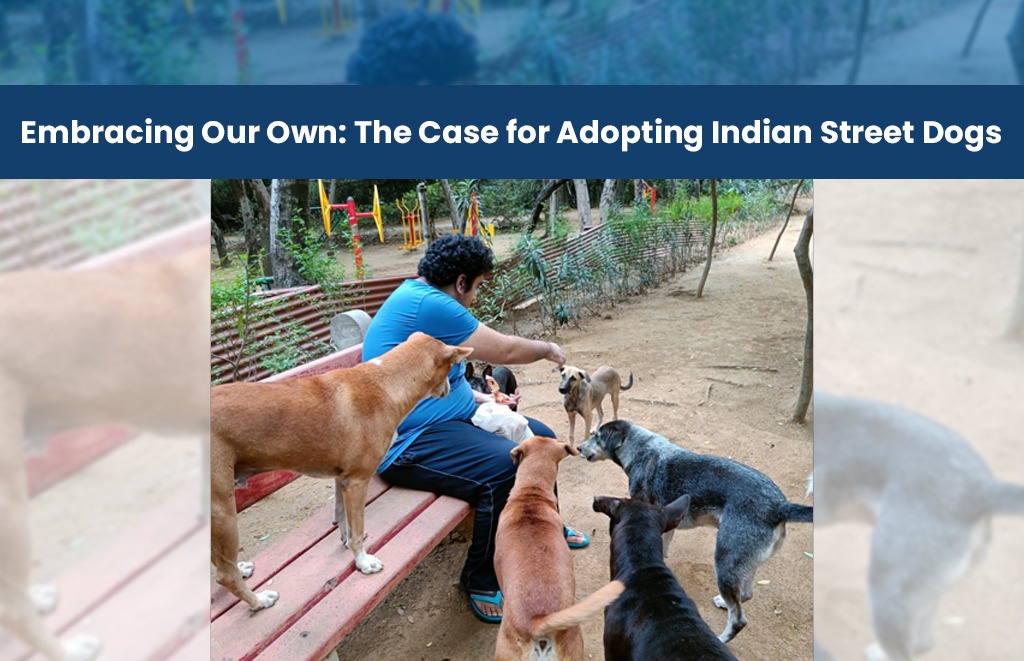Embracing Our Own: The Case for Adopting Indian Street Dogs
Table of Contents
- Introduction
- The Problem with Buying Pets
- The Positive Impact of Indian Street Dogs Adoption
- Busting Myths About Shelter Pets
- Guidance for Prospective Adopters
- Community Impact and Advocacy for Indian Street Dogs Adoption
- FAQ
- Conclusion
Introduction
Dogs are often called man’s best friend, and for good reasons. They are loyal, loving, intelligent, and fun companions who can enrich our lives in many ways. However, not all dogs are fortunate enough to have a loving home and a caring family. In India, there are millions of street dogs who struggle to survive on the streets, facing hunger, disease, abuse, and accidents. Many of them are Indian pariah dogs, also known as Indies. They are native to the Indian subcontinent and have a long history of coexistence with humans. Indian Street Dogs Adoption is not so common and unfortunately, these dogs are often neglected, mistreated, or even killed by people who consider them a nuisance or a threat.
On the other hand, many people want to have a pet dog. Still, they often prefer to buy exotic breeds from breeders or pet stores rather than adopt a local dog from a shelter or the street. This creates a massive demand for pedigree dogs, which leads to unethical and cruel practices such as puppy mills, inbreeding, and smuggling. Moreover, many of these foreign breeds are not well suited for the Indian climate and conditions and may suffer from health problems, genetic defects, and behavioural issues.
This blog post will make a case for Indian street dogs adoption and show why they are better than buying pets. We will also bust some common myths about shelter pets and guide prospective adopters. We hope that by reading this post, you will be inspired to embrace your own and give a street dog a chance to be your best friend.
The Problem with Buying Pets
Buying a pet dog may seem simple and convenient to get a furry companion, but it comes with many problems and risks. Here are some of the reasons why buying pets is not a good idea:
1.It fuels the cruel and illegal pet trade:
The demand for pedigree dogs has created a lucrative market for breeders and traders, who exploit and abuse the animals for profit. Many of them operate in unhygienic and overcrowded conditions, where the dogs are kept in cages, deprived of proper food, water, and veterinary care, and subjected to harsh treatments. Some even resort to smuggling, falsifying documents, and evading taxes. The puppies are often separated from their mothers at a very young age and transported in stressful and unsafe ways. Many of them die or suffer from injuries, infections, and diseases during the process.
2.It harms the health and welfare of the dogs:
Many pedigree dogs sold in India are not native to the country. They are not adapted to the climate and environment. They may have difficulty coping with the heat, humidity, and pollution. They may develop various health problems, such as skin infections, respiratory issues, and heat strokes. Moreover, many of these breeds have been selectively bred for certain physical traits, such as flat faces, long ears, or short legs. These may impair their normal functioning and cause genetic disorders, such as breathing difficulties, ear infections, spinal problems, and hip dysplasia. Some of these conditions may require expensive and painful surgeries or lifelong medication.
3.It contributes to the overpopulation and suffering of street dogs:
Every time someone buys a pet dog, they take away a potential home from a street dog who needs it. Millions of street dogs in India already compete for limited resources and space and face numerous threats and challenges. Many of them end up in shelters, where they may have to wait for a long time to get adopted or may be euthanized if there is no space or funds. By adopting a street dog, you are not only saving a life but also helping to reduce the population and the pressure on the shelters.

The Positive Impact of Indian Street Dogs Adoption
Indian street dogs adoption is not only a humane and ethical act but also a rewarding and beneficial one. Here are some of the positive impacts of adoption:
1.Saving Lives and Offering a Second Chance
Indian street dogs adoption gives them a new lease of life and a chance to experience love, care, and happiness. You are also making room for another dog in the shelter, who may otherwise be euthanized or left on the streets. You are also helping break the cycle of breeding, selling, and reducing the demand for pedigree dogs. You are making a statement that every dog deserves a home, regardless of their breed, appearance, or background.
2.Emotional Benefits for the Adopter
Adopting a street dog can also positively impact your emotional well-being and happiness. Studies have shown that having a pet can reduce anxiety, stress, and depression and improve mood, self-esteem, and social skills. Pets can also provide companionship, comfort, and support and help you cope with loneliness, grief, and trauma. Moreover, adopting a street dog can give you a sense of purpose, fulfilment, and gratitude as you witness their transformation and growth and share a bond of trust and affection.
3.Reducing Overpopulation and Supporting Shelters
Indian street dogs adoption can also help to reduce the overpopulation and suffering of street dogs in India and support the efforts of shelters and animal welfare organizations. Most street dogs available for adoption are sterilized, vaccinated, and dewormed, which means they will not contribute to the breeding and spreading of diseases. By adopting a street dog, you are also helping to fund the shelters and the NGOs, who rely on donations to cover their expenses and continue their work. You are raising awareness and encouraging others to adopt rather than buy pets.
Busting Myths About Shelter Pets
One of the reasons why many people hesitate Indian street dogs adoption is because they have some misconceptions or myths about them. Here are some of the common myths and the facts that debunk them:
Myth: Shelter pets are dirty, diseased, and dangerous.
Fact:
Shelter pets are not dirty, diseased, or dangerous. They are cleaned, groomed, and treated by the shelter staff and volunteers, who ensure they are healthy and fit for adoption. They are also screened for behavioural issues and trained and socialized to make them suitable for living with humans and other animals. Most shelter pets are friendly, playful, and gentle and pose no threat to anyone.
Myth: Shelter pets are old, ugly, and unwanted.
Fact:
Shelter pets are not old, ugly, or unwanted. They come in all shapes, sizes, colours, and ages, each with a unique personality and charm. They are not unwanted but instead abandoned, lost, or rescued from abusive or neglectful situations. They are not less worthy or deserving of love but rather more in need of it.
Myth: Shelter pets are difficult to train and adjust.
Fact:
Shelter pets are not difficult to train and adjust. They are adaptable and quick learners who can easily pick up new skills and commands. They are also grateful and loyal and will appreciate your efforts and reward you with their love and obedience. They may need time and patience to get used to their new environment and family, but they will become your best friends and companions once they do.
Guidance for Prospective Adopters
If you are interested in Indian street dogs adoption, here are some tips and steps to guide you through the process:
Do Your Research:
Before you adopt a street dog, ensure you are ready and prepared for the responsibility and commitment. Learn about the basic needs and care of dogs, such as food, water, shelter, exercise, grooming, and veterinary care. Consider your lifestyle, budget, and preferences, and choose a dog that matches your criteria and expectations. You can consult experts, such as veterinarians, trainers, or shelter staff, for advice and recommendations.
Find A Source:
You can find Indian street dogs adoption in many sources, such as shelters, NGOs, rescue groups, or individual volunteers. You can also search for online platforms that connect adopters and adoptees, such as websites, social media pages, or apps. You can also watch for street dogs in your neighbourhood or locality who may be looking for a home. However, verify the source and the dog and avoid scams or frauds.
Meet The Dog:
Once you have found a potential dog for adoption, arrange a meeting with the dog and the source. Please spend time with the dog and observe their behaviour, temperament, and personality. Ask the source about the dog’s history, medical records, and special needs or requirements. See if you feel a connection and compatibility with the dog and are comfortable and confident with them.
Complete The Formalities:
If you have decided to adopt the dog, complete the necessary formalities and paperwork. You may have to fill out an adoption form, provide your identity and address proof, pay an adoption fee, and sign an adoption contract. You may also have to undergo a background check and a home visit to ensure you are a suitable and responsible adopter. You may also have to register your dog with your local authorities or the Kennel Club of India (KCI) and get them a collar, a tag, and a microchip.
Bring The Dog Home:
Once you have completed the formalities, you can bring the dog home and introduce them to your family and other pets. Make sure you have prepared a comfortable and safe space for the dog where they can rest and relax. Please provide them with the necessary supplies, such as food, water, bowls, toys, bed, and leash. Be patient and gentle with the dog, and give them time to adjust and bond with you. Please do not force them to do anything uncomfortable, and respect their boundaries and signals. Reward them with praise, treats, and affection, and avoid scolding, hitting, or punishing them.
Train and Socialize The Dog:
Once the dog has settled in, you can start training and socializing them. Teach them the basic commands, such as come, sit, stay, down, and leave, and the house rules, such as where to sleep, eat, and go potty. Use positive reinforcement methods like clicker training and avoid harsh or aversive techniques like choke collars, shock collars, or alpha rolls. Socialize the dog with different people, animals, and situations, exposing them to sights, sounds, and smells. Ensure you always supervise the dog and keep them on a leash or in a fenced area outside. Do not let them roam freely or unsupervised, as they may get into trouble or danger.
Take Care Of The Dog’s Health:
Caring for the dog’s health is essential to being a responsible adopter. Ensure you take the dog to the veterinarian regularly. Follow their advice on deworming, vaccinations, tick and flea prevention, and spaying or neutering. Feed the dog a balanced and nutritious diet, and avoid giving them human food, chocolate, grapes, raisins, onions, garlic, or anything toxic or harmful. Ensure the dog gets enough exercise and mental stimulation, and do not feed them too much or too little. Groom the dog regularly, and check their ears, eyes, teeth, nails, and coats for any signs of infection, injury, or parasites. If you notice any changes in the dog’s behaviour, appetite, weight, or energy level, consult your veterinarian immediately.

Community Impact and Advocacy for Indian Street Dogs Adoption
Indian street dogs adoption can also positively impact your community and society and inspire others to follow your example. Here are some of the ways you can make a difference and advocate for adoption:
Share Your Story:
Sharing your story of adopting a street dog can help to raise awareness and educate others about the benefits and joys of adoption. You can share your story on social media, blogs, podcasts, or magazines and include photos and videos of your dog. You can also participate in events, such as adoption drives, fundraisers, or awareness campaigns, and showcase your dog and experience. You can also write reviews and testimonials for the shelter or the source where you adopted your dog and encourage others to support them.
Volunteer or Donate:
Volunteering or donating to shelters and animal welfare organizations can help to improve the lives and conditions of street dogs and support their efforts and initiatives. You can volunteer your time, skills, or resources and help feed, clean, groom, walk, or foster the dogs. You can also donate money, food, supplies, or equipment and help with the expenses and operations of the shelters. You can also sponsor or adopt a dog in someone else’s name as a gift or a tribute.
Spread The Word:
Spreading the word about Indian street dogs adoption can help to increase the demand and supply of adoptable dogs and reduce the stigma and prejudice against them. You can spread the word by talking to your friends, family, neighbours, or colleagues and telling them about the advantages and the challenges of adopting a street dog. You can also use social media, email, or messaging platforms to send or share information, links, or flyers about adoption. You can also wear or display merchandise that promotes adoption, such as t-shirts, stickers, or badges.
FAQ
Here are some frequently asked questions and answers about adopting street dogs:
How can I find a street dog for adoption near me?
You can find a street dog for adoption near you by visiting or contacting your local shelter, NGO, rescue group, or individual volunteer. You can also search online using websites, social media pages, or apps listing or featuring adoptable dogs in your area. You can also look around your neighbourhood or locality to see if street dogs need a home.
How much does it cost to adopt a street dog?
The cost of adopting a street dog may vary depending on the source and the location. Some sources may charge a nominal adoption fee, ranging from Rs. 500 to Rs. 5000, to cover the dog’s care and treatment expenses. Some sources may offer the dog for free or ask for a donation of your choice. Some sources may also provide additional services, such as transportation, post-adoption support, or lifetime care, for an extra charge. You should always ask for a receipt and a contract and avoid paying unreasonable or hidden fees.
What are the benefits of adopting an Indian pariah dog?
Indian pariah dogs, or Indies, are the native dogs of the Indian subcontinent who have evolved naturally and independently for thousands of years. They are considered to be one of the oldest and purest breeds of dogs in the world and have many benefits, such as:
1)They are highly intelligent, alert, and trainable and can quickly learn new skills and commands.
2)They are adaptable and resilient and can cope with different climates, environments, and situations.
3)They are low maintenance, easy to care for, and do not require much grooming, bathing, or trimming.
4)They are healthy and hardy and have a robust immune system and a high resistance to diseases and parasites.
5)They are loyal, affectionate, and protective and can form a strong bond and a lasting relationship with their owners.
Why should I consider adopting an Indian street dog over a breed?
Adopting an Indian street dog promotes inclusivity and helps reduce the stray dog population. They are often healthier, more resilient, and adapt to diverse environments.
Are Indian Street dogs suitable as family pets?
Absolutely! Indian street dogs are known for their loyalty and affection. They can become loving members of your family with proper care and attention.
What health considerations should I consider when taking a decision about Indian street dogs adoption?
Routine vaccinations, regular check-ups, and a balanced diet are essential. Many Indian Street dogs exhibit robust health, but preventive healthcare is crucial.
How can I identify the personality traits of an Indian street dog before adoption?
Spend time interacting with the dog at a shelter or rescue organization. Observing their behaviour, socializing, and understanding their temperament helps make an informed decision.
Are there any challenges specific to adopting an Indian street dog?
Some may have experienced trauma, requiring patience during the adjustment period. However, with consistent care and love, most Indian street dogs overcome past challenges.
Can Indian street dogs adapt to apartment living?
Yes, many Indian street dogs adapt well to apartment living. For them to stay healthy, regular exercise and mental stimulation are essential.
How can I support the well-being of Indian street dogs in my community?
Participate in local sterilization and vaccination drives. Additionally, raises awareness about responsible pet ownership and encourages adoption.
Are there breed-specific rescue organizations for Indian street dogs?
Yes, several organizations focus on rescuing and rehoming Indian street dogs. They play an essential role in advocating for the well-being of these animals.
What should I consider when introducing an Indian street dog to my existing pets?
Slow and supervised introductions are essential. Allow them to acclimate to each other’s scents and gradually increase interaction under controlled conditions.
How can I contribute to changing perceptions about Indian Street Dogs Adoption in society?
Share positive stories, highlight their unique qualities, and dispel misconceptions. By fostering a more positive view, we collectively contribute to the well-being and acceptance of Indian street dogs.
Conclusion
Indian street dogs adoption is a noble and rewarding decision that can make a positive difference in your and the dog’s lives. Street dogs are not inferior or undesirable but unique and wonderful and deserve a chance to be loved and cared for. By adopting a street dog, you are not only saving a life but also enriching your own. You are also helping to reduce the problem of overpopulation and suffering of street dogs and supporting the cause of animal welfare and rights. You are also setting an example and inspiring others to do the same. So, what are you waiting for? Embrace our own, and adopt a street dog today!







